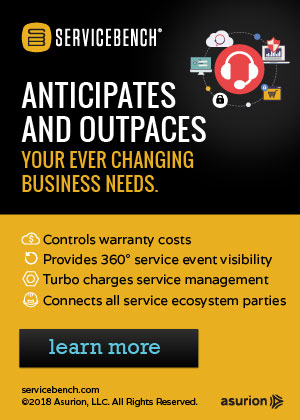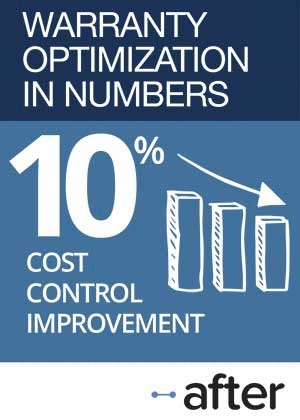OEM Vehicle Service Contracts, Part 1:
The top brands of passenger cars frequently administer and also underwrite the vehicle service contracts their franchised dealers sell. But they prefer if not much is said about it publicly.
As we wind down our tour of the vehicle service contract industry and prepare to publish some serious market share data, one section remains largely unexplored: the vehicle manufacturers themselves.
Everyone knows that the automakers provide product warranties with their vehicles. In fact, some such as Hyundai, Mitsubishi and Suzuki have rather publicly battled for the title of "America's best warranty."
And everyone knows that the auto dealerships sell extended warranties, which should probably be called vehicle service contracts or service plans or some other term that doesn't include the word warranty. But what isn't common knowledge is that the many of the top auto manufacturers administer the plans, and some even own the insurance companies that underwrite them.
We took a look at the top seven automotive OEMs, who together control roughly 86% of the market share of passenger cars and light trucks sold in the U.S. All seven offered self-branded vehicle service contract plans to their franchised dealers, which in turn offered them to consumers. Six of the OEMs administered the plans themselves, and five of them owned the underwriters, if we allow the definition of "own" to include minority investments.
Out of a list that includes GM, Ford, Toyota, Honda, Chrysler, and Hyundai, only Hyundai neither administered nor insured its own brand of VSCs. Besides that exception, all six of the others self-administered, but only Honda didn't also own the insurer. However, to make the list that long, we're counting Ally Financial Inc., formerly known as GMAC Inc., as a sister company or at least a close relative of both GM and Chrysler.
No Financial Disclosures?
We began our search by looking through the financial statements of the OEMs. Some mentioned vehicle service contracts, but none really thoroughly explained that their franchised dealers sold the brand name contracts which they administered (except Hyundai) and they insured (except Hyundai and Honda). And of course, none mentioned anything about the additional revenue they gained from this activity.
We don't know why the financial side of service contract sales is such a closely-held secret. It can't be shame, because the dealerships are fairly forthcoming with the names of the administrators and underwriters they work with. In fact, they provided most of the details contained in this week's newsletter.
Although, let's be frank: some of the former operators in the VSC industry have not brought much honor to their profession. Last year it was their aggressive and deceptive sales tactics that got them into trouble. In years prior some of them took the money and ran to the Cayman Islands, or spent it all chasing after the Mötley Crüe tour bus. And always there's a suspicion that the VSCs they sell are either overpriced or won't pay claims when they're needed most.
So who in their right mind would seek publicity for the VSC industry? Most seem to prefer the precise opposite: anonymity and a complete lack of publicity. But that probably has more to do with the fact that until 2003, even product warranty data was a closely-held secret. And had it not been for the felonies of Enron and WorldCom, it probably still would be. So in all likelihood, the reason the OEMs aren't detailing their VSC finances in public is simply because they still don't have to.
VSCs Started With the OEMs
The ironic thing is that the whole concept of extended warranties goes back to the days when only the manufacturer could sell an extension to the product warranty. The third party administrator channel, which so thoroughly dominates the brown and white goods industries, developed as an alternative to the manufacturer-administered plans.
In the auto sector, they never really went away. But they did get very quiet. For instance, in nearly eight years of Warranty Week headline collecting, we can't remember reading a single VSC-related press release issued by an OEM or one of their insurance companies.
What follows will be, to many of the warranty and service contract experts counted among our readership, a rather dry and predictable roundup of details they already knew. But hopefully to some readers, it will be the first time they have seen the proper names of, and relationships between, some of what we believe are the major players in the vehicle service contract business, at both the administrative and underwriting level.
One should remember that most franchised dealers also sell some used cars. Some of those used cars carry the same nameplates as their new vehicles. But some don't. So some of the OEMs administer VSCs for just their own nameplates, leaving the rest of the business to third parties. And some use different brand names for the VSCs sold for new vs. used vehicles.
General Motors Co.
The GM Protection Plan, which the company notes is the only service contract program it endorses for GM vehicles, is offered by many of GM's franchised dealers to buyers of GM vehicles. The Mechanical Repair Protection program is the equivalent program offered by GM dealers to buyers of non-GM vehicles.
VSCs come in three sizes: Basic Guard, Value Guard, and Major Guard. All are administered by GMAC Service Agreement Corp. and underwritten by its affiliate, the MIC Property and Casualty Insurance Corp. Basic Guard covers just the powertrain. Value Guard adds coverage for the brakes, air conditioning, steering, and some other components. Major Guard is the comprehensive exclusionary policy. All are available for an assortment of durations and distances: from 12 to 84 months and from 12,000 to 100,000 miles.
A detailed comparison of the plans is online at http://www.gmprotectionplan.com/coveragecomparison.html.
The old General Motors Corp., now formally renamed as the Motors Liquidation Co., always deferred to GMAC when it came time to sell or administer vehicle service contracts. In its annual reports, GM used to refer to them as extended service contracts, extended service warranties, or automotive extended service contracts. But GM itself always operated the maintenance contracts. And it still does today, using brand names such as Goodwrench Care, Oil Life Monitor Care, and Smart Care.
SmartLease Protect, offered by GMAC Service Agreement Corp., provides up to $5,000 in coverage for wear and tear on a leased GM car or truck. It also eliminates the need for a lease customer to leave a security deposit for wear and tear. Premiums range from $539 to $639, based on the length of the lease. GMAC told Automotive News last year that the nationwide attachment rate was around 10-15% for the program.
ACDelco, a brand of the GM Service and Parts Operations, offers VSCs through independent service centers enrolled in its Total Service Support Program. The VSCs, called CoverageOne Vehicle Service Plans, are administered by the Universal Warranty Corp. and underwritten by the Motors Insurance Corp., which are both part of the GMAC/Ally Financial family of companies.
Ford Motor Co.
Ford sells what it calls extended service plans through its franchised Ford and Lincoln Mercury dealers. Brand names include PowertrainCare, BaseCare, ExtraCare and PremiumCare. PorertrainCare, as its name implies, covers the engine, transmission, and some components of the axles. BaseCare adds coverages for major components such as steering, suspension, brakes, air conditioner, alternator and fuel pump. ExtraCare adds numerous additional electrical components. And PremiumCare covers everything but batteries, belts, hoses, and anything else specifically excluded in the contract.
A detailed side-by-side comparison of the four levels is available online at http://www.flmowner.com/servlet/ContentServer?pagename=Owner/Page/ESPPage.
Deductibles for these VSCs range from $0 to $200 per visit, but there's also an option for a "disappearing deductible" in which there is no deductible amount assessed when the repair work is done by the dealer that sold the VSC to the customer. Ford suggests that unless there's an emergency, the customer should have all repair work done by the selling dealer. Covered repairs are nevertheless available from any franchised Ford or Lincoln Mercury dealer in the U.S. or Canada.
Ford also sells its Premium Maintenance Plan, which allows customers to pre-pay their scheduled maintenance costs and to choose an interval of 5,000, 7,500 or 10,000 miles between visits. Coverage includes engine oil and filter changes, tire rotations, spark plugs, shock absorbers, belts and hoses, brake pads and linings, and wiper blades. Service is available from any franchised Ford or Lincoln Mercury dealer.
Service contracts are administered by the Ford Customer Service Division and are underwritten by the American Road Insurance Co. Both are headquartered in Dearborn MI, home of the parent company.
In its annual report, there is no estimate of Ford's vehicle service contract revenue. But there is this sentence regarding revenue recognition: "Fees or premiums for the issuance of extended service plans are recognized in income over the contract period in proportion to the costs expected to be incurred in performing services under the contract."
The only other mention Ford made regarding VSCs was this: "Through our dealer network and other channels, we provide retail customers with a wide range of after-sale vehicle services and products, including maintenance and light repair, heavy repair, collision, vehicle accessories and extended service warranty. In North America, we market these products and services under several brands, including Genuine Ford and Lincoln-Mercury Parts and Service, Ford Custom Accessories, Ford Extended Service Plan, and Motorcraft."
Toyota Motor Corp.
Except in the southeastern states, where Toyota dealers owned by JM Family Enterprises Inc. sell their own brand of VSCs, Toyota Financial Services sells what it calls its vehicle service agreements through franchised Toyota and Lexus dealers. Toyota Financial Services is the administrator, and Toyota Motor Insurance Services Inc. is the underwriter.
For new cars, the company sells Toyota Extra Care plans in three sizes: Powertrain, Gold, and Platinum. The Extra Care Powertrain plan covers new cars for six years or 100,000 miles. For used cars (sold by Toyota dealerships) the powertrain-only plan is available for either one- or two-year terms and distances of 30,000 to 100,000 miles.
Compared to the Gold plan, the Platinum plan covers more options and electronics such as navigation systems, radios, and airbags. It also covers more knobs, sensors, valves, and levers than the Gold plan. The Extra Care Powertrain plan, of course, covers little outside the engine, transmission and axle assemblies.
For new cars, both the Gold and the Platinum plans are available for durations of three to eight years and covered distances of 50,000 to 125,000 miles. For used cars, durations range from one to five years and distances range from 30,000 to 125,000 miles. However, for the four-year plans the longest distance that can be covered is 100,000 miles, and for the five-year plan the maximum is 85,000 miles.
A detailed comparison of the plans is available online at http://www.toyotafinancial.com/consumer/ShowBinary/BEA%20Repository/tfs/en_US/document/vsa/Toyota_QRF_Reader.pdf (it's a PDF file).
Outside of the southeastern states, Toyota dealers also sell Auto Care Prepaid Maintenance Agreements. The "Classic" package includes lockout protection, flat tire changes, jump starts, and towing, as well as oil and filter changes, chassis lubrication, and fluid replenishments. The "Premium" package adds in tire rotations and periodic inspections of all covered components.
Honda Motor Co. Ltd.
Honda Financial Services, a unit of the American Honda Finance Corp., administers the Honda Care VSC program for Honda vehicles, and the Acura Care VSC program for Acura vehicles. Plans are available with terms up to eight years or 120,000 miles.
Honda Care customer service is provided from offices in Torrance CA. Honda Motor Co. Ltd. of Japan is the ultimate parent company. However, the VSCs are underwritten by the Great American Assurance Co., part of the American Financial Group Inc., rather than by Honda itself.
In addition, Honda Care VSCs sold for non-Honda vehicles are administered by Automobile Protection Corp., also known as APCO, and are underwritten by Universal Underwriters Insurance Co., a unit of Zurich North America. APCO, widely known for its EasyCare VSC brand name, has been working with American Honda since 1994. It does similar work for the franchised dealers of Mazda, Volvo, Land Rover, and Jaguar vehicles. From 1999 to 2007, APCO was owned by the Ford Motor Co.
Besides the usual mechanical breakdown coverages, Honda Care and Acura Care plans also typically include roadside assistance, tire repair, emergency gasoline delivery, weather information, insurance claim filing assistance, free maps, and a Honda dealership finder. Most of these additional free perks are provided by the Cross Country Motor Club Inc., a unit of Cross Country Automotive Services Inc. Some of these added services are underwritten by the Old Republic Insurance Co., an A+ rated carrier based in Tulsa OK.
Chrysler Group LLC
Chrysler Service Contracts Inc., a unit of the Chrysler Group that's based in Troy MI, provides its franchised dealers with VSCs branded as Chrysler Service Contracts, Dodge Service Contracts, or Jeep Service Contracts, as appropriate. Chrysler Service Contracts Inc. administers the plans.
Chrysler Insurance Co., a subsidiary of Chrysler Financial, is the B++ rated underwriter of the programs, but this role may not continue. In the wake of the parent company's bankruptcy crisis, this role may now transition to another insurance company such as AmTrust Financial Services or perhaps to one of the GMAC/Ally companies (which are already working with Chrysler dealers on floorplan and retail financing). Chrysler Insurance remains in business, but its services have been pared back to items such as dealership inventory physical damage insurance, dealer employee benefit programs, personal auto insurance for dealership customers, and online defensive driving courses.
For Chrysler Service Contracts issued for new cars, durations of three to seven years are available with maximum covered distances of 36,000 to 100,000 miles. For customers lucky enough to have a 2006 or later vehicle covered by Chrysler's lifetime powertrain warranty, a "wrap around" bumper-to-bumper VSC with a lifetime duration, called a Lifetime Maximum Care Wrap, is also available. But it must be bought within the first 48 months and the first 48,000 miles of a new car's life, and it is not transferable to a second owner.
For used cars sold by Chrysler dealers, "Maximum Care" VSCs are sold with durations of one to five years, and distances up to 125,000 miles. Car rental and towing provisions are also part of the plans. Chrysler Roadside Assistance services are provided by Cross Country Motor Club Inc., a unit of Cross Country Automotive Services Inc.
For Canadian dealerships, Chrysler Canada Inc. provides service contracts that extend the basic product warranties (three years/36,000 kilometers bumper-to-bumper and five years/100,000 kilometers powertrain). Extended Powertrain Coverage adds a sixth and seventh year and another 60,000 kilometers of powertrain coverage (there's also a five-year, 200,000 km option that overlaps the product warranty in duration but adds extra covered distance).
Extended "Gold" Component Coverage is the brand name of the exclusionary VSC policy in Canada, with terms starting at 0 additional years/20,000 additional kilometers and topping out at four additional years/100,000 additional kilometers. During the fourth and fifth years of coverage, pre-paid maintenance services and road hazard coverages can be added into the plans.
Nissan Motor Co. Ltd.
Nissan Extended Services North America GP, part of Nissan North America Inc., administers two VSC plans, called Security+Plus and QualityGuard+Plus, as well as a prepaid scheduled maintenance plan called Maintenance+Plus. Security+Plus is designed for Nissan vehicles, while QualityGuard+Plus is designed for non-Nissan vehicles. Both VSC plans are underwritten by American Bankers Insurance Company of Florida, a subsidiary of Assurant Solutions.
Maintenance+Plus is described as a vehicle service plan, but it is not a service contract. The top-level "Gold Preferred" Maintenance+Plus plan covers routine maintenance items such as filters, fluids, blades and belts. It also includes comprehensive inspections of the brakes, lights, steering, axles, and other components, as frequently as every three months. Stepping down from that level are the "Gold" and "Silver" plans, and then finally the "Bronze" plan, which covers just oil changes and tire rotations.
Security+Plus and Maintenance+Plus are sold separately. However, both Security+Plus and QualityGuard+Plus VSCs also include emergency roadside assistance services, provided and administered by the Cross Country Motor Club Inc., a unit of Cross Country Automotive Services Inc. Services include jump starts, up to $5 of gasoline, tire changes (with your spare), lock-out assistance, and up to $100 worth of towing. VSC holders stuck more than 100 miles from home can contact the administrator to take advantage of up to $500 worth of alternate transportation, meals and lodging benefits.
Hyundai Motor Co.
The sale of service contracts for Hyundai vehicles is complicated by the presence of extra-long product warranties in the company's U.S. market. Powertrains are covered for 10 years or 100,000 miles, and the rest of the vehicle is covered by a five-year, 60,000-mile product warranty. There's also a seven-year anti-rust warranty and five years of emergency roadside assistance, all given away with every vehicle. What's left to sell?
Despite these obstacles, Hyundai Motor America offers its dealers the Hyundai Protection Plan, which can lengthen coverage up to 164,000 miles. The plans, which come in five "protection levels," are all administered by Fidelity Warranty Services Inc. and underwritten by Courtesy Insurance Co.
These companies, in turn, are owned by Jim Moran & Associates Inc., the service contract arm of JM Family Enterprises Inc., which also runs the giant Southeast Toyota Distributors from a headquarters in Deerfield Beach FL. The JM Family of companies sells their own brand of vehicle service contracts in Toyota dealerships.
Hyundai Protection Plans wrap around and extend the existing warranties for either six- year/75,000-mile or 10-year/100,000-mile terms. The Powertrain protection level, therefore, would not make sense at either level, at least for the first owner, since it duplicates the warranty they would get with a new vehicle. But it may appeal to a second owner, since the new vehicle warranty is non-transferable.
The Silver, Gold, Gold Plus, and Platinum levels gradually add more covered components, and more years, to the basic five-year, 60,000-mile bumper-to-bumper warranty. For instance, the Silver plan covers steering components, air conditioning, and both the starter and alternator. Gold adds coverage for the front suspension and brakes, as well as many of the lights and switches. Gold Plus covers the rear suspension and the radiator, as well as more of the electrical items. And then the Platinum plan covers everything but the wear and tear items, windows, shocks, batteries, hoses, and other components named on the exclusionary list.
A detailed comparison is available online at http://jmagroup.com/Partnerships/Hyundai/Hyundai_vehicle_protection_plan.aspx.
All five protection levels cover up to $375 in trip interruption expenses, and up to $75 in towing expenses. Rental car reimbursements are available for up to $35 per day and up to 10 days, depending upon the repair required. For an additional fee, road hazard coverage for the tires can be added to the plans in most states.









